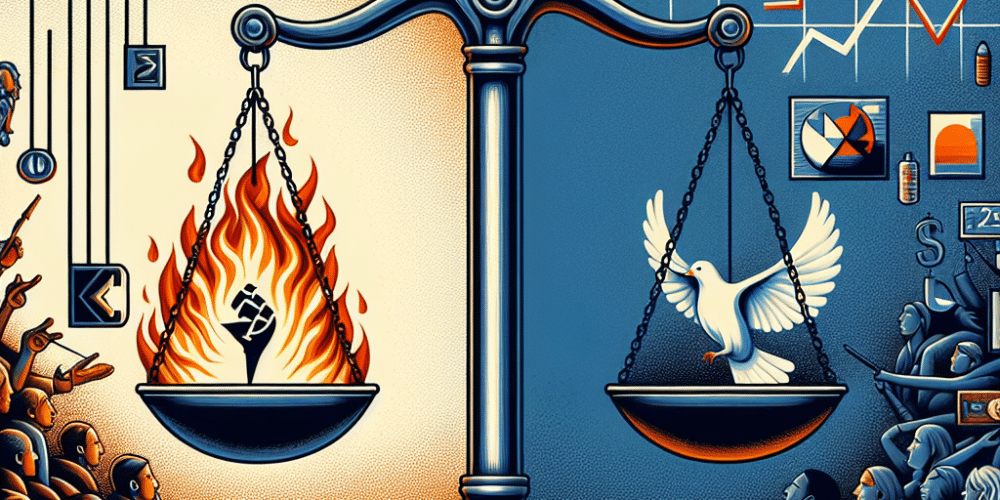Charlie Kirk’s fatal shooting on Wednesday, September 17, at Utah Valley University has sent shockwaves through the United States, highlighting the tense political climate that seems to deepen with each act of violence. Known for his conservative advocacy and confrontational debates with liberal students, Kirk was a prominent figure, especially among Republicans and young individuals not strictly aligned with a political party.
In a surprising move, prediction markets such as Kalshi and Polymarket, which had been featuring contracts on various aspects of Kirk’s public life, decided to withdraw these offerings following his untimely death. Kalshi removed all markets related to Kirk, including whimsical ones like his potential appearances on the animated show South Park. This decision underscores the sensitivity and ethical considerations in the wake of such a tragic incident.
Despite the withdrawal, it’s noteworthy that Kalshi has previously engaged in similarly sensitive topics, such as contracts about the fate of public figures like Luigi Mangione after controversial events. This raises questions about the criteria used by prediction markets to determine what is appropriate, as the boundaries between market speculation and respect for the deceased can easily blur.
Kalshi and Polymarket have maintained close ties with influential political figures, notably President Donald Trump and his family. Donald Trump Jr. holds advisory and board roles within these companies, suggesting a level of endorsement that could stabilize investor confidence in the prediction market’s continuity. This connection may provide some assurance to stakeholders who value the markets’ ability to predict political outcomes, aligning with the enduring popularity of similar platforms among conservatives.
However, the regulatory landscape presents a different perspective. Regulators often express concerns over the ethical implications of these markets. Following the news of Kirk’s death, Kalshi released a solemn statement expressing their sorrow, coinciding with their decision to retract the related markets. President Trump also conveyed his condolences through social media, emphasizing Kirk’s influence and legacy among American youth. His message highlighted the personal loss felt by many, including himself and his family, conveying a deep sense of admiration and mourning.
While Kalshi chose to retract markets related to Kirk, Polymarket opted to challenge the narrative by posing a provocative question: Could Kirk’s death lead to a civil war? This inquiry, while capturing the essence of prediction markets’ speculative nature, risks crossing into insensitive territory, especially when considering the gravity of political violence and its potential ramifications on societal stability.
This kind of speculation opens a broader discussion on the role and responsibility of prediction markets in society. They operate on the premise of forecasting events, yet there is a delicate balance between engaging users and respecting societal norms and individuals’ memories. The decision to withdraw or maintain certain markets can reflect broader societal attitudes towards free speech, market regulation, and the ethical bounds of public discourse.
From another viewpoint, some argue that prediction markets serve a unique role in offering insights into public sentiment and potential future events. They provide a platform for individuals to express their views on likely outcomes, which can sometimes offer a sense of collective analysis. However, this perspective is not without its critics, who caution against the potential for such platforms to trivialize serious matters or incite unnecessary panic.
The debate over the appropriateness of prediction markets in sensitive situations continues. While supporters highlight their value in democratic discourse and public engagement, detractors worry about the ethical implications and the potential for these markets to influence actual events. As the market for predictions grows, so does the need for a careful examination of their impact on society.
In conclusion, the tragic death of Charlie Kirk has prompted significant reflection within prediction markets, as seen with Kalshi’s withdrawal of related contracts and Polymarket’s continued exploration of controversial questions. The response from these platforms illustrates the ongoing tension between market dynamics, ethical considerations, and societal impact. As political violence remains a troubling aspect of the current landscape, the role of prediction markets will likely continue to be a topic of intense scrutiny and debate.

David Harrison stands tall in gambling journalism, marrying his firsthand casino experiences with a deep understanding of betting psychology. His articles transform complex gambling jargon into engaging tales of strategy and chance, making the world of betting accessible and enjoyable. David’s knack for narrative extends beyond print, making him a sought-after speaker on gambling trends and future bets. In the realm of gambling, David is both a scholar and a storyteller, captivating readers and listeners alike.
















